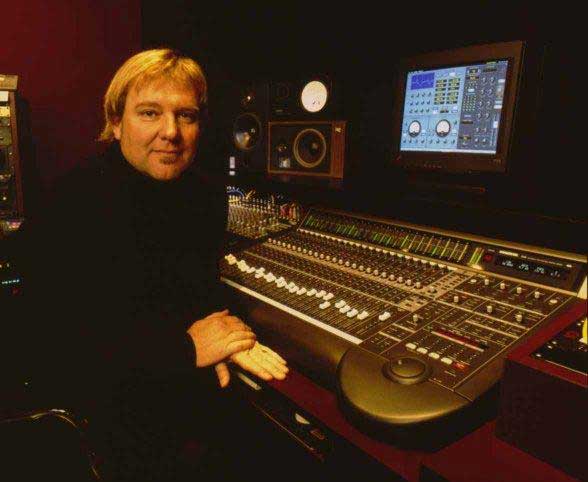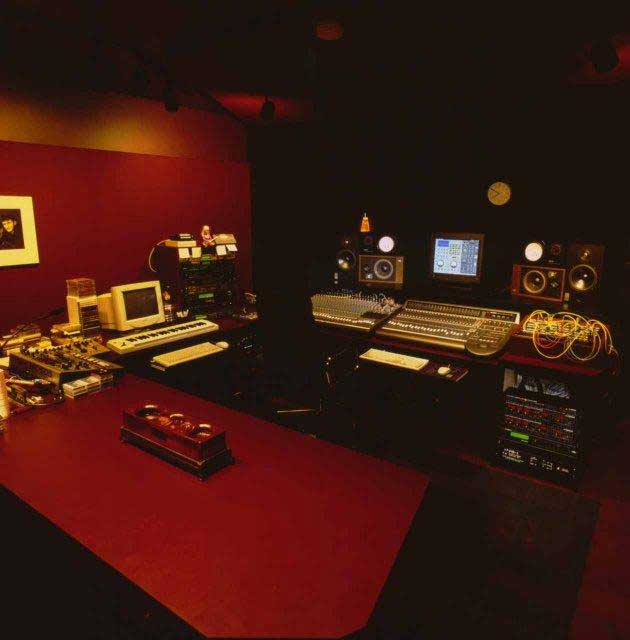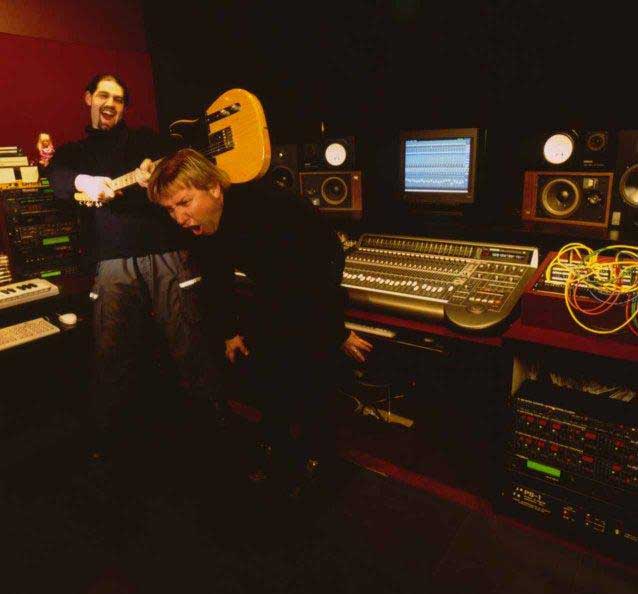The Spirit Of Alex Lifeson and his D8B
By Christopher Buttner, Mackietone News, January 2000

Since their first major album release in 1973, RUSH has established themselves as the most enduring and interesting of "progressive" rock acts. Delivering a level of musicality atypical of the genre, the band remains popular both among fans and fellow musicians alike. Consisting of drummer Neil Peart, bassist/vocalist Geddy Lee, and guitarist Alex Lifeson, RUSH is renowned for their complex, if not epic, song arrangements. Formed in Toronto, Canada in 1969, to date the group's recorded legacy includes 16 studio albums and four multi-disc live albums, as well as four anthology sets.
Induction into a number of magazines' Halls of Fame throughout the world for Best Guitarist, Bassist, Keyboardist, Drummer, and Band, attests to Rush's "musician's musician" status. The band's virtual hero status in Canada is further borne out by a place on Canada's Walk of Fame and being the first rock group recipient of the prestigious Order of Canada medal. Created in 1967 to recognize "significant achievement in important fields of human endeavor, the trio received that award as much for their community service--raising over $1 million for food banks and the United Way--as for their contribution to the arts. Closing out the century on a high-note, RUSH, by a two-to-one margin, won the JAM! ShowBiz online poll as Canada's "most important musicians of all-time."

What's the band been up to lately? After a three year hiatus, RUSH is anticipating going back into the studio to record their 17th studio album in October 2000. (That's right, you heard it here first). But most recently, on the 'big budget Hollywood film front', Alex and Geddy contributed their guitar-layered version of their country's national anthem for the "South Park, The Movie. Bigger, Longer and Uncut" soundtrack. Alex states matter-of-factly, "Geddy and I recorded 'O Canada' for the South Park soundtrack here in my home studio, standing at attention during the entire recording process...".
Considered the 'scientist' of the band, Alex's extensive home studio has always centered around a Mackie console, evolving from an analog 32?8 with a 24E to the fully automated digital Mackie D8B he purchased in late 1998. "At some point, I was thinking that I might get another D8B to replace the 24 8 I use for keyboard returns, and have the full 48 DSP returns. It sure would look cool!"
Alex shares time on the D8B with his 22 year-old son, Adrian, stating, "It's in constant use between Adrian and I. I have to book time in advance just to mess around with it." Continuing Alex states, "Adrian writes a lot of Electronica, I would almost call it transient... not really dance music, it's a little tougher sounding than that. We're actually in the process of putting some mixes together so we can seek a deal for him."

Discussing the production process, Alex states, "The D8B's automation is so friendly and easy to use. I tend to get relatively complex with the music I create. Most of what I do is guitar-based, layered with piles upon piles of guitars that come in and go out all over the place. So to have the complete automation power of the D8B is a very important part of putting it all together."
So, what was the transition like going from an analog to digital console? "With analog, you're mixing on-the-fly and every time you do a mix of the same song, it's always a little different," states Alex. "If you have a very complex mix, things can become difficult. You obviously know where you are within the limitations of the console, since it's all laid out in front of you. But with the D8B you're working on four different levels and you know exactly where you are at any point in the project. The D8B is very direct, very easy, and very simple for everything that I use it for--and that includes tracking, overdubs, and mixing. With the D8B, there are no diversionary moves to achieve a simple goal."
Alex adds he usually has several projects in the works, all at various states of development. "You can get as complex as you want, developing whatever you're working on, especially with the compression, gain and EQ... and I use the DSP extensively. Without total automation there's always a risk of getting so deep in one project you lose sight of what you're doing on everything else. With the D8B, no matter how deep I get, I can always just recall an earlier mix from wherever I am at any point and bring it back every time, regardless of the complexity of the project."
What about sound quality? "The sound quality of my D8B is up there with significantly more expensive consoles. It has a very smooth, natural sound and is just plain easy to use. I love working on it, and that's what counts, right?"